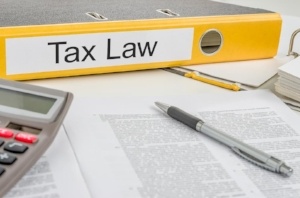Are Income Taxes Dischargeable in a Bankruptcy Case?
 The Internal Revenue Service will frequently assert a claim for unpaid income taxes and be one of the largest creditors in a chapter 7 case. Therefore, many individuals considering a bankruptcy case inquire about the dischargeability of income taxes.
The Internal Revenue Service will frequently assert a claim for unpaid income taxes and be one of the largest creditors in a chapter 7 case. Therefore, many individuals considering a bankruptcy case inquire about the dischargeability of income taxes.
Here are the rules you need to know:
The General Chapter 7 Rule—Debts are Discharged
The bankruptcy discharge is the financial fresh start for the honest but unfortunate debtor and is the reason for filing a chapter 7 bankruptcy case. In general, a chapter 7 bankruptcy discharge:
- voids any judgment to the extent the judgment is a determination of the personal liability of the debtor; and
- operates as an injunction against any action to recover debts as a personal liability of the debtor.
Income Tax Exceptions
Perhaps the most significant exceptions to the discharge are the exceptions for income taxes. The exceptions include the following:
Three Year Exception
The discharge does not apply to income taxes for a taxable year ending on or before the date of the filing of the bankruptcy case for which a tax return is last due, including extensions, after three years before the date of the filing of the bankruptcy case. For example, assume:
- the last date to file a tax return for taxable year 2013 was April 15, 2014; and
- debtor filed a timely tax return on April 1, 2014 and had an unpaid income tax liability.
The tax liability for taxable year 2013 would not be subject to discharge if the chapter 7 bankruptcy case is filed within 3 years of April 15, 2014 (the date for the return was last due).
240 Day Exception
The discharge does not apply to income taxes for a taxable year ending on or before the date of the filing of the bankruptcy case where the tax is assessed within 240 days before the date the bankruptcy case is filed, plus various time periods, including the time periods:
- when collection of the tax was stayed during a prior bankruptcy case, plus 90 days; or
- an offer in compromise is pending or in effect during the 240-day period, plus 30 days.
For example, if a tax return for a prior year is audited and additional taxes are assessed, then the taxes would not be discharged if the bankruptcy case were filed within 240 days (plus various time periods) following the assessment. This exception gives the IRS a minimum amount of time (240 days) to collect a tax.
Unfiled Returns Exception
A discharge does not apply to a debt for an income tax with respect to which a return or equivalent report or notice, if required is not filed. This exception is not controversial—if the IRS does not have notice of the tax liability, then the liability cannot be discharged.
Late Filed Return Exception
The discharge does not apply to an income tax for a return filed after the due date and within two years before the filing of the bankruptcy case. Some courts have ruled that an income tax based on a late filed return is never discharged in a bankruptcy case.
Fraud Exception
The bankruptcy code creates an exception to discharge for a tax debt for which the debtor made a fraudulent return or willfully attempted in any manner to evade or defeat the tax. This exception reinforces the policy that the fresh start is only available to the honest debtor.
Understanding the Process
Whenever tax liabilities are involved, we begin with the general rule and then go through the various exceptions to determine whether the liability ultimately is dischargeable. Absent discharge in bankruptcy, the tax liability remains outstanding pending expiration of the statute of limitations applicable to tax collection. Depending on the amounts involved, the taxing authority is going to be more or less aggressive with collection.
At Fisher Rushmer, P.A. we draw upon the experience of our lawyers to offer a comprehensive approach to solving financial problems for individuals and businesses. Contact one of our bankruptcy attorneys now to find out how our skills and experience can help solve your legal matters.
Subscribe to Our Blog
Related Posts

Can I File Bankruptcy and Keep My Car?

